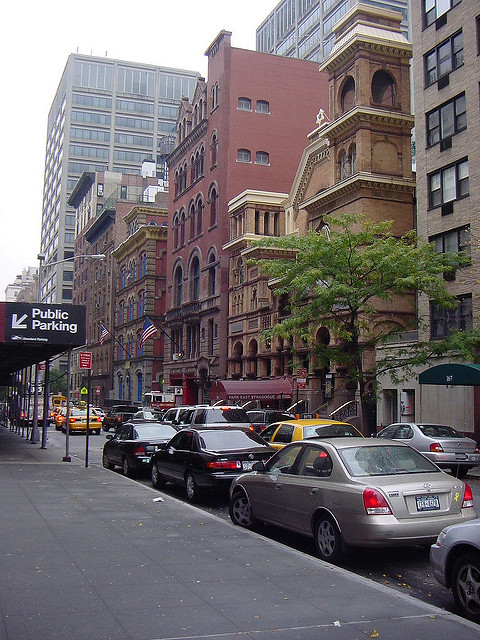After a two year investigation into complaints of civil rights and health violations, the Equal Employment Opportunity Commission (EEOC) announced a $4 million settlement for former employees at the Sara Lee factory located in Paris, Texas. This case marks the largest settlement in EEOC history involving a hostile work environment. The EEOC took on the case after twenty-five workers filed complaints against the company during their time at the now-shuttered factory, which closed in 2011. Attorneys now estimate that over seventy employees stand to benefit from the settlement. In addition to financial reparations, the company will be required to implement measures to prevent workplace discrimination and to submit regular reports to the EEOC. Read on for a look inside the landmark case.
THE ALLEGATIONS AGAINST SARA LEE
The EEOC’s two year investigation found that black employees were targets of intimidation and were denied promotions that went to their white peers. Black employees reported racial slurs and graffiti during their time at the factory, incidents which were corroborated by the EEOC. A lawsuit filed separately from the EEOC complaint revealed that the graffiti included racial slurs, threats, and crude drawings of apes and black men with nooses. A large portion of the alleged abuse came from white supervisors within the factory and several Sara Lee officials have been accused of ignoring complaints from black employees about the conditions within the factory. In addition, workers were reportedly exposed to black mold asbestos and other toxins during their daily work. The working conditions were so hazardous that:
One of the cake lines was nicknamed the ‘cancer line,’ because so many people were getting sick, said Sara Kane, one of the workers’ attorneys, of the law office Valli, Kane & Vagnini.
According to the investigation, black employees were exposed to these conditions while their white colleagues were promoted to positions located in safer areas of the factory. These white employees were allegedly often less-experienced than their black co-workers but they received promotions nevertheless.
According to the EEOC’s report, several black employees contracted cancer and other diseases as a direct result to their exposure to toxins in the workplace. When black employees reported their diseases to management, their complaints were either ignored or dismissed as being unrelated to working conditions within the factory. The closure of the factory in 2011 meant that the EEOC had relatively limited exposure to the physical conditions of the factory, so the investigation did rely heavily on interviews with employees.
THE ROLE OF THE EEOC
The EEOC enforces federal laws against discrimination in most companies with 15 employees or more (although this can vary according to certain jurisdictions and circumstances). The EEOC processes both private sector and federal sector violations of discrimination laws, although it takes a more active investigative role in private sector cases. There are two distinct private sector and a federal sector mediation programs, which each offer dispute resolution with EEOC cooperation. If conciliation cannot resolve a private sector dispute, the EEOC has the right to pursue litigation and also has a right to participate in an ongoing lawsuit. According to the EEOC website,
The EEOC has the authority to investigate charges of discrimination against employers who are covered by the law. Our role in an investigation is to fairly and accurately assess the allegations in the charge and then make a finding. If we find that discrimination has occurred, we will try to settle the charge. If we aren’t successful, we have the authority to file a lawsuit to protect the rights of individuals and the interests of the public. We do not, however, file lawsuits in all cases where we find discrimination.
The EEOC may handle tens of thousands of complaints every year, but they very rarely escalate to the heights that the Sara Lee case has, which makes the future of Sara Lee critically important. If Sara Lee complies with the EEOC regulations and actively changes its workplace environment in the coming years, it will serve as a model for other companies that have had large-scale reports of discrimination. The successful transformation of the Sara Lee case will lie with its parent company–Tyson Foods.
A NEW NAME AND A NEW BRAND
In 2012, so chronologically after the alleged abuse occurred, Sara Lee went through a major re-branding, effectively splitting the business in two. The food side of the business was labeled Hillshire Brands while the tea and coffee end of the company (centered in Europe) was named D.E. Master Blenders 1753. The name change was speculated to have been prompted by lackluster sales of meat products.
In 2014, Hillshire Brands completed a merger with Tyson Foods, Inc. which The Wall Street Journal referred to as the “meat industry’s biggest deal.” After the merger, Hillshire’s chief executive Sean Connolly stepped down, clearing the way for new leadership. However, the Sara Lee discrimination case did not disappear with the name change. Although headlines associate the case with Sara Lee, Tyson is now liable for the settlement and for rebuilding the brand’s image in the wake of the EEOC investigation. In an interview with Buzzfeed News, Tyson Foods spokesperson Worth Sparkman said the company is
‘Committed to treating our team members with dignity and respect and have a policy against harassment and discrimination,’ noting Tyson Foods requires annual training and offers a toll-free help line for workers to report any concerns without fear of retaliation. ‘While we don’t agree with all of the allegations in this case, we oppose any unlawful discrimination in the workplace and believe it makes sense to resolve this matter,’ Sparkman wrote in an email. When asked which allegations the company disagrees with Sparkman said, via email, ‘We’ll point out that any alleged conduct in this case occurred before portions of Sara Lee were acquired by Tyson Foods in 2014.’
The Tyson brand has also had a series of legal skirmishes over working conditions over the past few years. This November, the Supreme Court heard a case against Tyson in which employees argued that Tyson unlawfully failed to pay for the time it took them to put on and then remove safety equipment during their daily tasks. In a lower court, employees were awarded half of what their counsel requested. The case has raised interesting questions about collective action lawsuits, as the case involves more than 3,000 workers in total: Should that many employees be allowed to file their complaint at one time, in a single case?
The Supreme Court has approached the case less as an issue of wage violations and more as a debate over what the threshold should be for the number of participants in a collective action lawsuit. Yet, if the Supreme Court rules in favor of the employees, Tyson may pay out even more than they did in the Sara Lee case–approximately $6 million.
CONCLUSION
The Sara Lee case is a unique one in that a significant number of workers were courageous enough to file complaints and patient enough to wait for the legislative process to work over several years. Not every discrimination case is investigated by the EEOC, either because there is not sufficient evidence or because victims do not feel safe reporting misconduct. Hopefully, the Sara Lee case will inspire other companies to enact preventative measures to disband discrimination. The EEOC has delivered a decisive victory for the employees of the Texas factory, we’ll have to see what effects it might have in future discrimination cases.
– Staff Writer Jillian Sequeira, Law Street Media
Read original article in Law Street Media






![Black_Firefighters_Cover_Sh[1]](https://www.newyorkemploymentlawattorneys.com/wp-content/blogs.dir/2/files/2011/07/Black_Firefighters_Cover_Sh1-200x300.jpg)